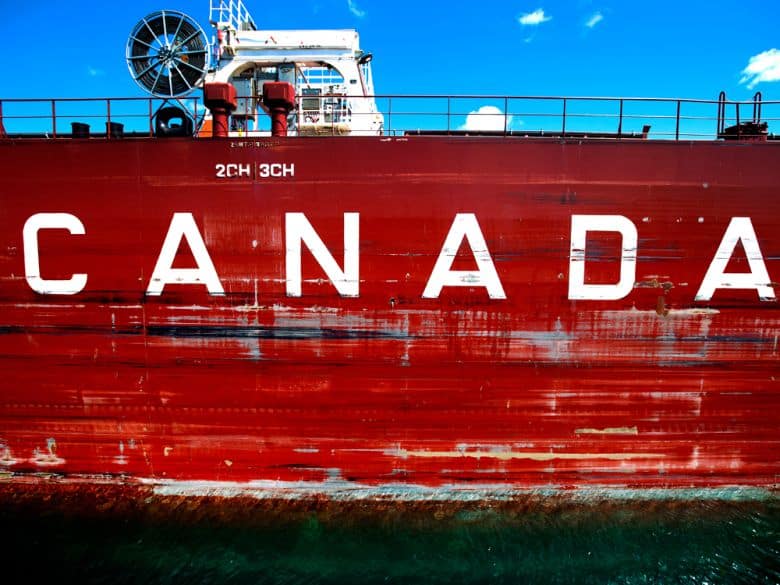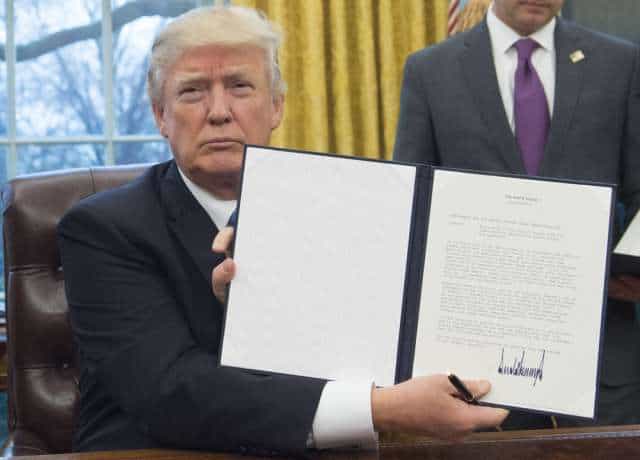
Opinion: The world’s most radical trade pact has come into force across the Pacific as the U.S. sulks on the sidelines
The world’s most radical trade pact has come into force across the Pacific as the U.S. sulks on the sidelines, marking a stunning erosion in American strategic leadership.
Eleven countries are pressing ahead with the Comprehensive Agreement for Trans-Pacific Partnership (CPTPP), defying barely-disguised efforts by the Trump administration to kill the treaty.
A vanguard of Japan, Singapore, Mexico, Australia, Canada and New Zealand activated the treaty over the weekend, ripping down barriers to trade in almost all goods. It eliminates 18,000 tariffs and slashes others in stages over coming years.
The great irony is that the U.S. itself drafted much of the original text under the Obama administration, aiming to ensure that Washington, not Beijing, writes the rules of global trade and commerce in the 21st century.

The pact opens up trade in services on the basis of equal treatment. It cuts the costs of customs clearance, rules of origin and compliance to a minor friction. Once Vietnam, Malaysia, Peru, Chile and Brunei have ratified the treaty it will cover 13.5 per cent of global GDP, bigger than the EU’s post-Brexit market and a faster-growing region of the global economy.
South Korea, Thailand, Taiwan, Indonesia and Colombia have all expressed interest in joining. So has the U.K., despite being in the Atlantic. It promises to become the world’s biggest free trade zone in short order, and perhaps the nucleus of a new global order.
The partnership – earlier known as the TPP – was originally a tool of U.S. foreign policy. It was to anchor the “Asian pivot” and underpin the US system of military and diplomatic alliances around the Pacific Rim.
In the words of one former U.S. defence secretary it was worth more to American power than another aircraft carrier battle group. Above all, it was a way to “contain” the hegemonic reflexes of China.
Instead it is the U.S. that has contained itself. President Donald Trump pulled the country out of the talks within days of taking office in January 2017, deeming it a “potential disaster” for American workers. Critics say it will go down as the greatest strategic blunder of his presidency.
The White House assumed that the TPP would wither on the vine without U.S. impetus. Instead, long-standing U.S. allies across the Pacific have brushed off pressure from Washington and forged ahead regardless with what is now known as the “anti-Trump pact.”
America is the biggest loser,” says the Peterson Institute in Washington. The fall in food tariffs under the CPTPP means that U.S. farmers will be undercut by exporters from Australia, Canada, and New Zealand in the lucrative Japanese market.
The latest twist is that Chinese officials have begun to explore the possibility of joining the pact that was supposed to exclude them, prompting a wary riposte from its founders.
Jeffrey Schott from the Peterson Institute says the US achieved its core objectives with the original TPP, establishing a regime based on “US standards and practice”. It has thrown this accomplishment away.
The Pacific free trade deal is in stark contrast to the fight between the US and China for technological supremacy. A 90-day truce in the bilateral trade war has delayed a further rise in US tariffs on $200bn (pounds 157.5bn) of Chinese goods from 10pc to 25pc.
Yet the risk remains that Mr Trump will ultimately subject the gamut of Chinese exports to punitive tariffs. This would endanger almost $1 trillion of bilateral trade and threaten a global economic shock.
China has tried to counter US trade policies by developing its “One Belt One Road” programme across an arc of 65 countries as far as Africa, largely through infrastructure projects.
But it no longer has a large current account surplus and is having to ration capital outflows to defend the yuan. Its use of debt financing to gain control of ports and strategic assets in a “string of pearls” around the Indian Ocean has led to an angry backlash.
Some Chinese officials judge it wiser to drop the neo-imperial pretensions and aspire instead to work more modestly through the multilateral framework of the CPTPP. Mr Trump has conveniently left them an open door.


